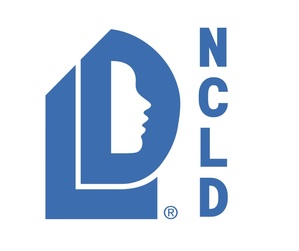Learning Disabilities: New Survey Finds Americans Confused About Causes, Treatments And Rights
Correlation to IQ, poor vision and childhood vaccines among persistent myths; Parents cite lack of adequate information from schools
NEW YORK, Sept. 4, 2012 /PRNewswire/ -- Results from a new survey released today by the National Center for Learning Disabilities (NCLD) reveal that Americans lack basic understanding of learning disabilities other than dyslexia, and improperly cite childhood vaccines, subpar diet and poor eyesight as potential causes. An estimated 15-20% of the U.S. population has a learning disability, broadly defined as difficulty learning in a typical manner.
(Photo: http://photos.prnewswire.com/prnh/20120904/NE67336-INFO )
The nationwide survey of nearly 2,000 Americans, conducted during August 2012, found two-thirds of parents wanting more information about learning disabilities than schools currently provide. One-third of respondents said it is appropriate to ask a job candidate if they have a learning disability, when it is in fact against the law. More than 40% of those polled said that IQ and the presence of learning disabilities are negatively correlated, where no such relationship exists.
The survey findings were made public as NCLD released its next-generation website, LD.org, with easy navigation to comprehensive information about learning disabilities spanning basic definitions of terms, a new "stage-and-age" section allowing parents to personally tailor their site experience, and a streamlined tool for access to national, state and local learning disability resources.
"While great strides have been made in awareness of learning disabilities, these findings underscore the critical need for education, and for resources like our new website," said James H. Wendorf, Executive Director of the National Center for Learning Disabilities. "Better informed parents will recognize markers earlier and become more effective advocates for their children. Teachers and school administrators will intervene sooner and create more effective, evidence-based education plans, and students and adults with learning disabilities will have the support and playing field they need to succeed in school, career and life."
A full executive summary of the survey findings can be read at: LD.org. Among the survey's findings:
- 55% of Americans wrongly believe that corrective eyewear can treat certain learning disabilities.
- 43% incorrectly think that learning disabilities are correlated with the IQ.
- 22% incorrectly believe learning disabilities can be caused by too much screen time; 31% believe a cause is poor diet; 24% believe a cause is childhood vaccinations.
- Specific learning disabilities like dysgraphia (difficulty with handwriting), dyscalculia (difficulty with math) and dyspraxia (difficulty with motor skill development) were most often confused as an autism spectrum disorder, difficulty with emotional connections, and an anxiety disorder, respectively.
- 30% admitted to making casual jokes about having a learning disability when someone makes a reading, writing or mathematical mistake.
For more information about the National Center for Learning Disabilities, visit LD.org and Facebook.com/LD.org, or follow @LDorg on Twitter.
About the Survey
The survey, underwritten by the National Center for Learning Disabilities, was conducted by Lindberg International and the findings are based on responses from a random sampling of approximately 2,000 American adults (male & female) across the United States via an online survey. The margin of error is 4.4%. 12% of the respondents cited having a learning disability, and 8% of the parents surveyed have a child with a learning disability. For an executive summary, please visit LD.org.
About the National Center for Learning Disabilities
NCLD is the largest organization in the US fighting for parents and children with learning disabilities. For over three decades NCLD has worked from Capitol Hill to the classroom to support the 15 million Americans with LD. The National Center for Learning Disabilities' (NCLD) mission is to ensure success for all individuals with learning disabilities in school, at work and in life. At NCLD, we connect parents and others with resources, guidance and support so they can advocate effectively for their children; we deliver evidence-based tools, resources and professional development to educators to improve student outcomes; and we develop policies and engage advocates to strengthen educational rights and opportunities.
SOURCE National Center for Learning Disabilities
WANT YOUR COMPANY'S NEWS FEATURED ON PRNEWSWIRE.COM?
Newsrooms &
Influencers
Digital Media
Outlets
Journalists
Opted In




Share this article